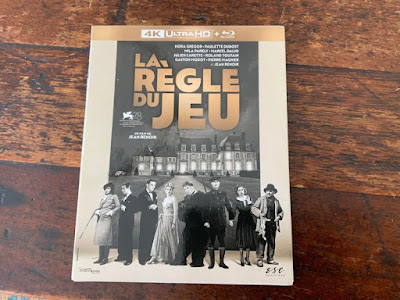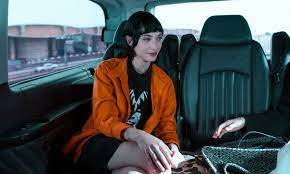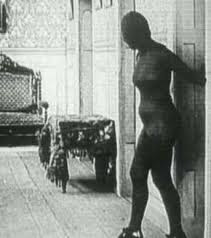Editor's note: This is the second piece to appear about this year's Korean Film Festival in Australia. The event took place in Sydney from 18-23 August. It is screening in Canberra from 1-3 September, Melbourne from 1-5 September and Brisbane from 8-11 September. Visit the KOFFIA website for details and bookings BY CLICKING HERE Barrie's earlier post can be found IF YOU CLICK HERE. Needless to say the opinions expressed are those of the author.
************************
Yong-sun Jo’s Gonggisarin/Toxic/Air Murder is derived from an actual incident in the spring of 2011, where Koreans, mainly women, began falling victim to a mystery lung disease. Losing his wife and finding his son struck down, Trauma Center Doctor Kim Sang-kyung (Bong Joon-ho’s Memories of Murder) joins the scientific detective work which traces the problem to a disinfectant used in home humidifiers.
Rather than accept culpability, the villainous corporation responsible starts buying off experts and class action members. They plan to rebrand their accumulated stock. Looks like the doctor has taken the bribe of a costly transplant for his child, arousing the indignation of fellow victims. However, the film has a twist ending - of course.
This one is aimed at the Erin Brockovich audience, though it lacks the conviction of its model. Polished production values aren’t really a help.
The event also mustered a romcom, Eun-ji Jo’s Perhaps Love/Not on My Lips, neither plausibly romantic or funny as it struggles to be both edgy and wide appealing.
Academic Seung-ryong Ryu (Seoul Station) hasn't managed a book in seven years and he’s been caught making it with his ex-wife by their son, Yoo-Bin Sung. Publisher Kim Hee-won is talking legal action. To complicate matters, Mu jin-sung, a boy in Seung’s literature class, has a crush on him and the draft of the kid’s novel was picked up by the publisher and taken to be Seung’s new work in progress. A writing collaboration, while the student keeps on coming on, seems the only solution.
Meanwhile, Yoo-Bin Sung has become involved with lively young married woman Yoo-Young Lee, who is the only one to register in all this. It works out with location shooting in Lithuania.
Smooth production and yet another sex film without nudity. A Hollywood remake seems unlikely.
Dangsin-eolgul-apese/In Front of Your Face is the 26th feature from director, producer, writer, musician, cinematographer & film editor Hong Sang-soo, who is often compared to Woody Allen (Interiors maybe) because he makes modest, vaguely autobiographical films often featuring movie director characters.
Really he’s doing what Yasujiro Ozu was supposed to and, in my opinion, never managed - involve his audience with small scale, intimate character family studies.
In Front of Your Face is about a mature actress (Lee Hye-yeong) who returns to Seoul after years living in the US, where her career dwindled to running a Washington bottle shop. Reuniting with her sister (Yunhee Cho), their meeting reveals how far they have lost touch with each other’s lives. After a walk in the park, they have a spicy broth snack at the sister’s favorite cafe, though our heroine has an afternoon lunch appointment. They visit the nephew’s cake shop and he catches up with them and makes his aunt a present of a leather wallet. She is touched.
With a little time to spare before her meeting, Lee Hye-yeong checks out the house where she used to live, with its now overgrown garden, and is welcomed by the young woman who now operates it as a clothing store.
The appointment proves to be with director Kwon Hae-hyo who was mesmerised by the honesty of a scene in one of her nineties movies and wants to work with her (and sleep with her). As they get through a stack of Chinese wine bottles (his assistant is standing by to drive him) he outlines a project that will take a year to prepare but she makes a revelation which colours everything we have seen.
Kwon is moved and proposes instead a short film which they will make traveling together. The next morning when Lee Hye-yeong wakes in the shade cloth window room where we first saw her, he ‘phones in to cancel the plan and that’s the film.
It holds attention without action, mixing trivial and important events without emphasis. Most scenes are covered in a single run of the camera with the only image variation coming from panning or zooming. The park conversation where the sisters describe a disused rail bridge doesn't show it till the end of the scene that it’s a transition shot and, where there is a cutaway to the cafe sign in the dialogue with Kwon (again as a time-lapse), this disrupts the rhythm of the piece surprisingly.
I’m hooked and would like to see more of the director’s work.
Best of what I watched in the event was another contemplative piece, Su-won Shin’s Omaju/Hommage.
It parallels the misfortunes of dumpy Lee Jeong-eun (Parasite’s housekeeper and the voice of Okja) as her marriage, her health and her movie director career all disintegrate. While super hero blockbusters draw crowds, Lee’s new film is playing to empty theatres. Our heroine’s teenage son turned her work off when watching with friends and her producer partner is giving up. Husband Hae-hyo Kwon, doing much the same characterhe does in In Front of Your Face, rolls home drunk and shows no sympathy, so Lee decides to separate, which consists of taking a rack of her clothes into the next room.
Her situation and the film’s comment are made more obvious as a young producer offers the job of restoring the battered and fragmentary 1962 Yeopansa A Woman Judge, made by Hong Eun-won, possibly Korea’s first woman movie director, (the actual restoration is on YouTube). The sixties film’s subject matter creates a further comparison as a study of a pioneer female figure in the Korean legal system.
This schematic is not allowed to dominate, with the detail of the film recovery work becoming more involving - the expert dubbing actor shown picking up synchronisation with lip movements as the shot on screen runs, following missing footage to a derelict cinema which once premiered Ben Hur but now does porn, with light coming in through a hole in the roof and passing traffic throws reflections on the screen through the open doors, or the meeting with the original continuity girl in, her house in the field of feather grass where she produces a black Eiki in remarkably good running order to unveil the secret of the recovered censor cut.
Nicely played and handled Hommage shows a welcome light touch with its message.
Simultaneous with the festival, there was a multiplex release of Han Jae-rim’s Bisang seoneon/Emergency Declaration. You could walk between the two events.
Here Song Kang-ho, the most recognisable face of Korean cinema (Parasite, A Taxi Driver, Snowpiercer), plays a veteran Police Detective who has just seen his wife off for a flight to Hawaii when he’s called to the discovery of a body which proves to be the victim of a disgruntled researcher become bio-terrorist. While investigating, Song discovers that the suspect has actually boarded flight no. KI501 out of Incheon, of course the one his wife took. At the airport, former pilot Lee Byung-hung (Joint Security Area), now afflicted with fear-of-flying but accompanying his young eczema afflicted daughter, has a brush with a weird fellow passenger.
Sure enough, panic spreads in the air as the passengers and crew are struck down, while back on the ground Song heavies the crazy’s scientist industrialist former employer and Transport Minister Jeon Do-yeon marshals a counterterrorism task force. Destination countries threaten to shoot down the plane rather than risk them spreading contagion - distant runway shots and fuel shortage as they approach the last accessible airport, calling in their emergency declaration. The montage of black framed I-Phone images of passengers making their last calls from the descending plane is the film’s one resonant passage.
Yes it’s The High & the Mighty re-tooled for a contemporary audience.
The film seems to have had some success but it really is too formulaic (though they do pull a switch with the Song Kang-ho plot). It looks like money was spent on it. Performances and production are polished, with touches like the pattern of light through the windows moving as the flight changes direction but there are more of those toy plane in the air shots which undermine these films. The festival’s small productions were a better investment of my time.
When it was over, the Korean Film Festival was more interesting for its possibly misleading glimpse of (South) Korean film-making and the country it projects. This was not unlike Australian product where the technical resources are in place but what they are used for suggests a society with no significant voice of its own, leaving it only intermittently able to command audience attention. I was struck by the contrast with the Kazakh films I saw a couple of years back, all asserting the attention their emerging society rated. Those recalled the mind opening discovery of the world from its movies which marked my first experience of film festivals, now a long time ago.




























